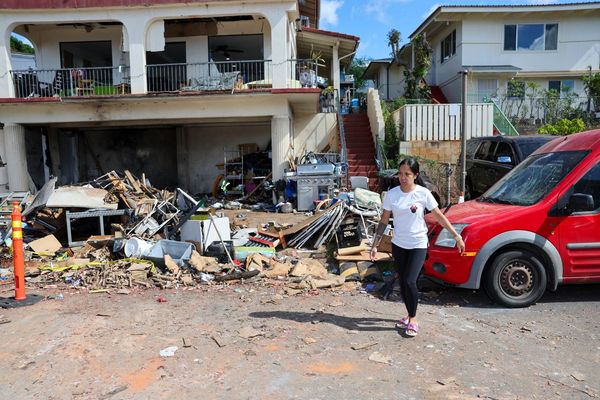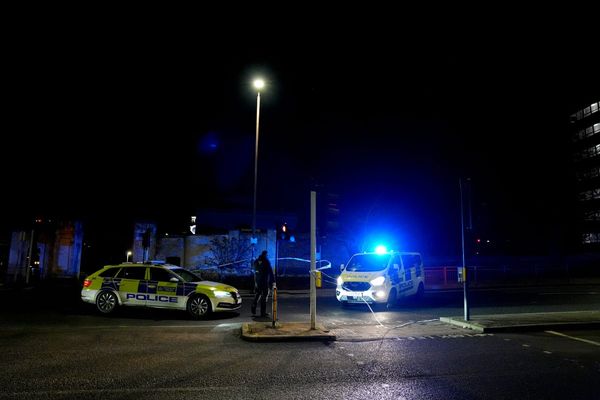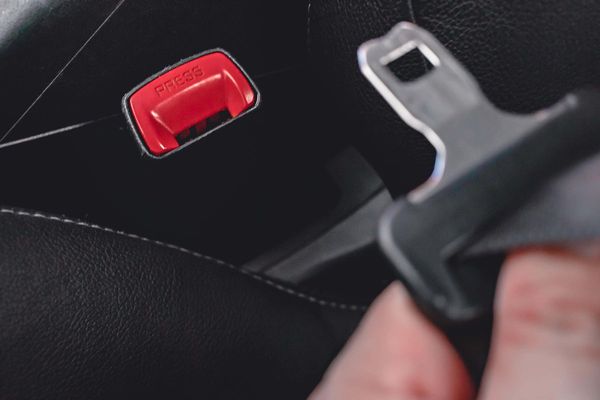
Eight Israeli soldiers have been killed in a blast that engulfed their armoured vehicle in southern Gaza, in the biggest loss of life for the Israel Defense Forces (IDF) in a single incident since January.
The deaths came amid continuing fighting around Rafah in which at least 19 Palestinians were killed in Israeli strikes.
According to the IDF, the squad of combat engineers were in a convoy of half a dozen armoured vehicles returning from a mission at about 5am on Saturday morning in the Tal al-Sultan area of the southern Gaza city when their vehicle was destroyed.
Earlier, the armed wing of Hamas said fighters had ambushed an armoured personnel carrier, killing and wounding a number of Israeli soldiers, in the area in the west of Rafah, where Israeli forces have been advancing for weeks.
According to reports in the Israeli media, the IDF was investigating whether the vehicle exploded after being targeted or following the accidental detonation of explosives which the soldiers had been transporting in their vehicle.
The explosives had been stored on the vehicle’s exterior, a tactic reportedly used to avoid harm to the occupants in the event of detonation. The blast occurred after several other vehicles had already passed the same location, and killed all those inside immediately.
The latest deaths will probably fuel mounting calls for a ceasefire and heighten Israeli public anger over ultra-Orthodox exemptions from the military. Although IDF fatalities from the Gaza operation and immediate surroundings, which now stand at 307, have been hugely outnumbered by Palestinian deaths – which have seen more than 37,000 killed, according to Gaza health officials, the majority of them civilians – the growing toll of death and injuries to Israel’s armed forces has taken greater prominence as the war has dragged on.
In January, 21 Israeli troops were killed in a single attack. On Sunday the Israeli cabinet is expected to discuss increasing the age limit for reserve duty for soldiers by a year. It follows the recent decision to raise the cap on the number of reservists who can be called up by 50,000, amid evidence that the IDF is being stretched fighting on two fronts and with no end to the conflict in sight.
In May, the parents of more than 900 Israeli soldiers deployed in Gaza signed a letter urging the military to call off its ongoing offensive in Rafah, calling it a “deadly trap” for their children.
“It is evident to anyone with common sense that after months of warnings and announcements regarding an incursion into Rafah, there are forces on the other side actively preparing to strike our troops,” said the letter, sent on 2 May.
“Our sons are physically and mentally exhausted,” adds the letter, addressed to the defence minister, Yoav Gallant, and the IDF chief of staff, Lt Gen Herzi Halevi.
“And now, you intend to send them into this perilous situation? … This appears to be nothing short of recklessness.”
The increasing combat toll also comes against the background of a heated debate around the issue of who serves in the army. Last month, Israel’s supreme court ordered an end to government subsidies for many ultra-Orthodox men who don’t serve in the army.
However, Benjamin Netanyahu’s government – which relies heavily on ultra-Orthodox parties – last week voted in favour of a new law extending exemptions for religious men.
Although the first vote was only procedural, it caused an uproar by being approved during a war in which hundreds of soldiers have died and many others remain inside Gaza or on the frontlines against Hezbollah militants in Lebanon.
That prompted a second open letter last week from families of combat soldiers addressed to Gallant and Halevi. In the letter the families said they were asking their “fighting children” to “stop the fighting right now, put down their weapons and return home immediately,” adding: “We will not sacrifice our children on the altar of public corruption.”







